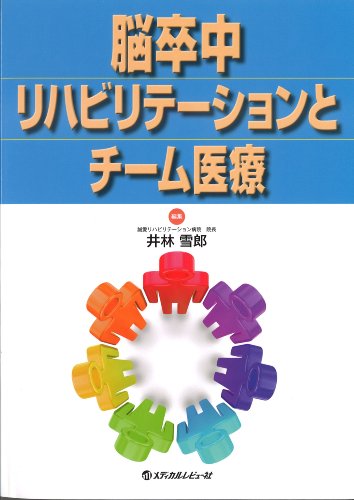1 0 0 0 OA 糖尿病における脳血管障害の臨床的特徴
- 著者
- 岩瀬 正典 井林 雪郎 飯田 三雄
- 出版者
- 一般社団法人 日本糖尿病学会
- 雑誌
- 糖尿病 (ISSN:0021437X)
- 巻号頁・発行日
- vol.48, no.1, pp.10-12, 2005 (Released:2008-04-11)
- 参考文献数
- 5
1 0 0 0 脳卒中リハビリテーションとチーム医療
- 著者
- 井林雪郎編集
- 出版者
- メディカルレビュー社
- 巻号頁・発行日
- 2013
1 0 0 0 OA 降圧薬と脳循環
- 著者
- 藤島 正敏 佐渡島 省三 石束 隆男 井林 雪郎 藤井 健一郎
- 出版者
- 一般社団法人 日本脳卒中学会
- 雑誌
- 脳卒中 (ISSN:09120726)
- 巻号頁・発行日
- vol.11, no.1, pp.1-10, 1989-02-25 (Released:2009-07-23)
- 参考文献数
- 50
The effects of various antihypertensive agents in relation to cerebral circulation and cerebral vessels were widely reviewed throughout the literature. The changes of cerebral blood flow (CBF), cerebral metabolism and CBF autoregulaiton were also discussed under the acute or chronic administration of antihypertensive agents in human being and experimental animals as well.Antihypertensive agents include diuretics, methyldopa, clonidine, reserpine, alpha-blockers, beta-blockers, vasodilators, calcium antagonists and angiotensin converting enzyme inhibitors, which habe been widely used for hypertensives with or without stroke.Acute effects : A bolus or continuous injection, or a single oral administration of vasodilators, calcium antagonists and reserpine increases CBF regardless of the blood pressure alteration. In contrast, both clonidine and beta-blockers decrease CBF by direct vasoconstriction or by decreasing cerebral metabolism. CBF remains unchanged or slightly increases by administration of alpha-blockers and angiotensin converting enxyme (ACE) inhibitors. No documents have been reported about the acute effect of diuretics and methyldopa. The lower limit of CBF autoregulation is shifted to lower levels by the administration of alpha-blockers, vasodilators and ACE inhibitors. Beta-blockers have no effects on autoregulatory range, while calcium antagonists affect little or or slightly raise the lower limit to a upper level.Chronic effects : Long-term administration of antihypertensive agents has different influence on CBF compared with acute administration. In hypertensive patients without stroke, most of agents do not change CBF, but some agents rather increase. In hypertensive patients with stroke CBF is increased by methyldopa and ACE inhibitors, but unchanged by alpha-blockers.Each antihypertensive agent has different inherent effects on cerebral circulaiton. Therefore we must know the pharmacological action of the drugs on brain itself or cerebral circulation, when we treat the hypertensive patients, especially in the cases who have a history of stroke.

